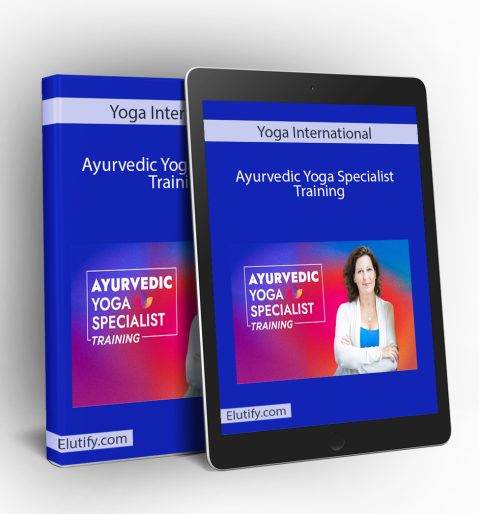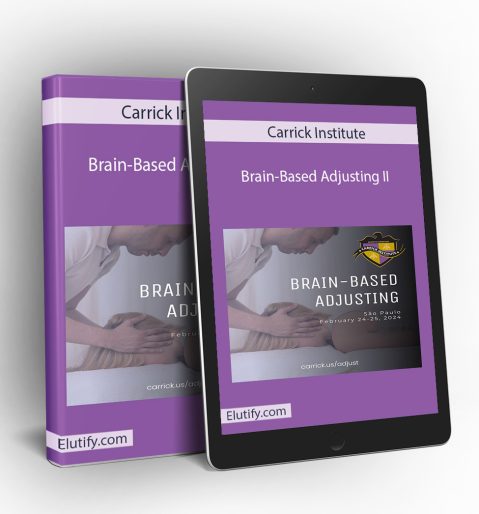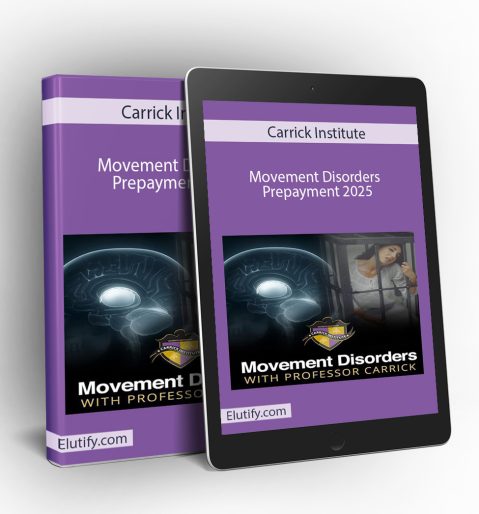Yoga International – Ayurvedic Yoga Specialist Training

Become an Ayurvedic Yoga Specialist: Comprehensive Training by Yoga International
📄 Click here to view the full course details on the official sales page
(Includes complete description, key features, and official curriculum from the course creator.)
Product Overview (by Elutify):
To study Ayurveda is to learn how the mind, body, and spirit interconnect with the world around us. Ayurveda, often called the “sister science” of yoga, focuses primarily on lifestyle practices. These practices support health, balance, and self-transformation. Our unique 120-hour Ayurvedic Yoga Specialist certification program incorporates yoga as the foundation for studying Ayurveda. This training combines live and pre-recorded classes, divided into four modules. Each module consists of three days, and all content is available for playback at any time.
In our Ayurvedic Yoga Specialist training program, you will learn the core concepts of Ayurveda. This includes the six tastes of Ayurveda, psychological and emotional concepts, and the lifestyle and philosophical applications of this ancient wisdom. You will discover how simple implementations of Ayurvedic diets and routines create profound transformations in your life and the lives of others. You will also experience firsthand the rejuvenating power derived from balancing the doshas. This balance comes from aligning your actions with the seasons, life stages, and daily phases. Immerse yourself in Ayurvedic study with an enthusiastic online community, add a new dimension to your yoga teaching and personal practice, and become an Ayurvedic Yoga Specialist!
When you enroll in this comprehensive Ayurveda program, you will gain the knowledge and skills needed to:
- Design dosha-balancing asana sequences for different seasons, times of day, and specific age groups.
- Use Ayurvedic recipes and food and spice combinations to address imbalances and promote health and vitality.
- Create a practical lifestyle plan for yourself and your students based on specific needs and goals.
- Offer one-on-one Ayurvedic consultations with a nutrition and lifestyle focus.
- Confidently teach Ayurvedic wellness principles in the classroom.
- Understand how an Ayurvedic diet and Ayurvedic lifestyle principles support the practices of yoga.
The Ayurvedic Yoga Specialist training includes the following topics:
- How cultivating prana (life force) and ojas (deep vitality) can regulate and support agni (digestive fire) for optimal health.
- An in-depth study of the doshas (Ayurvedic constitutions), gunas (psychological tendencies), vayus (“winds” or movements of prana), and koshas (sheaths, or the layers of our being).
- How to teach asana and pranayama to kindle agni and circulate prana for optimal energy management.
- The alchemy of yoga and Ayurveda.
- Diet and lifestyle adjustments to support daily, seasonal, and stage-of-life changes.
- How to identify and address vikriti (constitutional imbalances) using asana, pranayama, deep relaxation, and meditation.
Unit 1: The Macrocosm and Microcosm of Ayurveda and Yoga
Unit 1 forms the foundation for all Ayurvedic Yoga Specialist modules. This is where you begin your journey using the tools of Ayurveda and yoga. Ayurveda, one of the oldest medical systems globally, offers rich, simple methods to support your health. This session focuses on the foundations of Ayurveda, its relation to yoga philosophy and practice, and how it can make you feel more at home within yourself. You will begin learning the basics of creating sustainable daily practices. These practices support the balance of an individual’s constitution, including their physical body, mental body, and sense of purpose. Yoga teachers and practitioners alike will discover how to work with asana, pranayama, relaxation, and meditation practices to support balance and overall well-being from an Ayurvedic perspective.
Using interactive group work, lecture, and practice, you will:
- Learn more about the philosophical and spiritual foundations of Ayurveda.
- Discover how yoga and Ayurveda support and complement each other.
- Become more familiar with Ayurveda’s tridoshic theory (vata, pitta, kapha).
- Know the difference between prakriti (unique elemental nature) and vikriti (current state of imbalance).
- Begin to understand how to use the yogic practices of asana, pranayama, relaxation, and meditation to move toward greater wellness and balance.
- Identify how your yoga practice supports your health and overall sense of well-being as you move through the different seasons of life.
- Be able to practically implement Ayurvedic and yogic concepts into daily routine, diet, and lifestyle management plans for clients, students, or personal use.
Upon completion of Unit 1, you will understand the following concepts:
- Purusha (pure consciousness) and prakriti (universal nature).
- The elements that manifest in the body and mind (koshas and doshas).
- The three doshas (vata, pitta, kapha).
- How the Ayurvedic clock relates to the time of day, the four seasons, and different stages of life.
- How to determine your physical type (dosha prakriti) and your current imbalance (vikriti).
- The energetics of asana and how to structure yoga classes from an Ayurvedic perspective.
Homework for this module includes:
- Creating and implementing your own dinacharya, a daily practice of Ayurvedic routines.
- Answering 10 open-ended questions designed to help you integrate the material and prepare for Unit 2.
- Outlining correlating chapters in your required books.
- Designing yoga classes for the pacification of the doshas.
Unit 2: The Psychology of Ayurveda and the Physiology of Yoga
In Unit 2, you will learn the technical aspects of the bio-psycho-spiritual connections in Ayurveda. Our primary focus will be on the architecture of the mind, its energies (gunas), and the body-mind’s vital essences (prana, tejas, ojas). We will delve deep into asana, pranayama, and meditation from the sub-dosha perspective of Ayurveda.
Upon completion of Unit 2, you will understand the following concepts:
- The architecture of the mind and its energies or gunas (sattva, rajas, tamas).
- The subtle essences of the doshas (ojas, tejas, and prana) and how they manifest in the body.
- How to create practices to help maintain balance during seasonal changes.
- The key practices to address vata, pitta, and kapha imbalance.
- The relationships between the sub-doshas and specific actions, organs, and emotional states.
Homework for this module includes:
- Completing an open-ended questionnaire as your take-home test.
- Completing additional assignments to help you sequence dosha-balancing yoga practices (individual dinacharya).
- Refining your daily routine with practices specific to your prakriti and vikriti.
- Using online support, such as pre-recorded yoga classes, to practice techniques designed to help balance the doshas.
Unit 3: Improving Our Digestion of Food, Thoughts, and Actions
In Unit 3, you will apply the historical and technical knowledge gained from the previous units to physical, emotional, and mental practices. You will look closely at the factors affecting digestion and assimilation in the body and the mind. Additionally, you will learn techniques that regulate your physical, mental, and spiritual digestive fires (agnis).
Upon completion of Unit 3, you will be able to:
- Use the six tastes to create a balanced diet.
- Use internal and external practices to regulate agni (digestive fire).
- Develop clinical awareness of asana, pranayama, meditation, and diet/lifestyle as they relate to digestion and assimilation.
- Make ghee, kitchari, seasonal veggies, churnas, and medicinal teas, essential to Ayurvedic practices.
Homework for this module includes:
- Considering how you would apply the principles from Units 1–3 to a client setting. This involves taking yourself and your lifestyle through the process, then asking how you would do the same for a client.
- Practicing preparing the staples of an Ayurvedic lifestyle: ghee, kitchari, seasonal veggies, churna, and medicinal teas.
- Reviewing your food sadhana: identifying how the six tastes and subtle essences of the doshas (ojas, tejas, and prana) can affect your body.
Unit 4: Clinical Use of Ayurveda and Yoga
In Unit 4, you will learn how to integrate information from the first three units into the clinical application of working with private clients. We will review physiology, psychology, Ayurvedic treatment plans, dinacharya, lifestyle, and subtle body practices of yoga. You will also learn about the uses of tongue and pulse diagnosis.
Upon completion of this module, you will graduate as a Certified Ayurvedic Yoga Specialist. This NAMA-recognized Ayurvedic education can serve as a supplement to your existing business and an extension to teaching students in a one-on-one setting.
As a Certified Ayurvedic Yoga Specialist, you will be able to:
- Design and implement Ayurvedic yoga classes to address dosha imbalances.
- Add Ayurvedic practices to one-on-one sessions with yoga clients.
- Offer Ayurveda 101 educational programs.
- Create individual treatment plans for clients.
- Create seasonal Ayurvedic cooking and cleansing programs.
Begin the Torchbearer program to support you as you implement Ayurvedic tools into your work!
Ready to unlock profound wellness and empower your teaching? Begin your Ayurvedic Yoga Specialist journey now!
More Premium Courses





